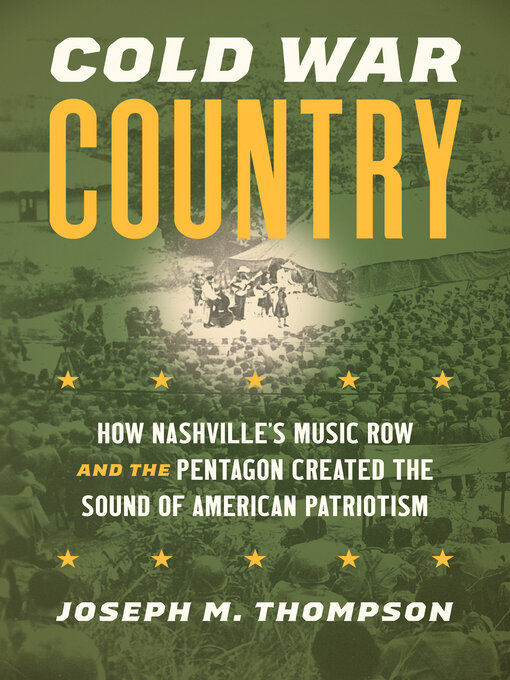Country music maintains a special, decades-long relationship to American military life, but these ties didn’t just happen. This readable history reveals how country music’s Nashville-based business leaders on Music Row created partnerships with the Pentagon to sell their audiences on military service while selling the music to servicemembers. Beginning in the 1950s, the military flooded armed forces airwaves with the music, hosted tour dates at bases around the world, and drew on artists from Johnny Cash to Lee Greenwood to support recruitment programs. Over the last half of the twentieth century, the close connections between the Defense Department and Music Row gave an economic boost to the white-dominated sounds of country while marginalizing Black artists and fueling divisions over the meaning of patriotism.
This story is filled with familiar stars like Roy Acuff, Elvis Presley, and George Strait, as well as lesser-known figures: industry executives who worked the halls of Congress, country artists who dissented from the stereotypically patriotic trappings of the genre, and more. Joseph M. Thompson argues convincingly that the relationship between Music Row and the Pentagon helped shape not only the evolution of popular music but also race relations, partisanship, and images of the United States abroad.
- Available now
- New eBook additions
- New kids additions
- New teen additions
- Most popular
- Try something different
- NYPL WNYC Get Lit Book Club
- Spotlight: Toni Morrison
- See all ebooks collections
- Available now
- New audiobook additions
- New kids additions
- New teen additions
- Most popular
- Try something different
- NYPL WNYC Get Lit Book Club
- Spotlight: Toni Morrison
- See all audiobooks collections
